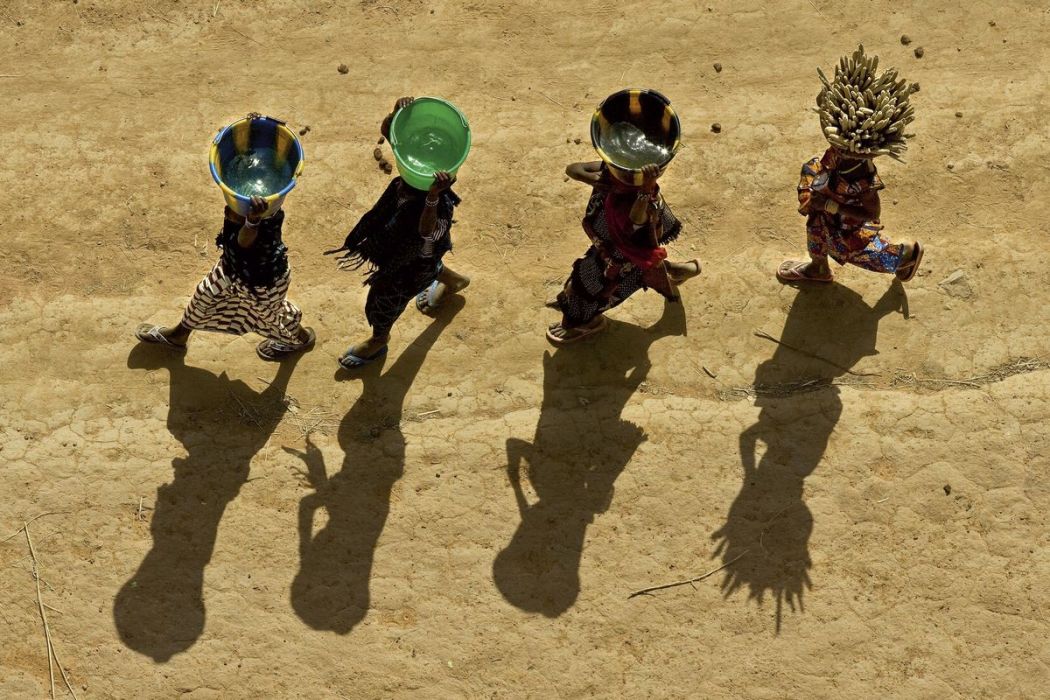By buying this product you can collect up to 178 loyalty points. Your cart will total 178 points that can be converted into a voucher of 35,60 €.
 View larger
View larger
Picture information
Young girls carrying buckets, Mali
Yann ARTHUS-BERTRAND
Art photography by Yann ARTHUS-BERTRAND of young girls carrying buckets in the Dogon region near Bandiagara in Mali that often travel 7 miles (10 kilometers) on foot to collect water for household tasks.
Data sheet
| Orientation | Landscape |
| Color | Yellow |
Young girls carrying buckets, Mali
Yann ARTHUS-BERTRAND
Art photography by Yann ARTHUS-BERTRAND of young girls carrying buckets in the Dogon region near Bandiagara in Mali that often travel 7 miles (10 kilometers) on foot to collect water for household tasks.
Fine Art Photography
Print by Experts
100 % Made In France
A recognized expertise, a search of permanent quality.
Printed by a professional photographic laboratory.
All prints are made to order, controlled by the Technical Director.
A certificate of authenticity is provided with each photograph.
Framework made by selected materials to give you the best results. every step of the processing is monitoring by experts.
Loyalty points
Gift Card
Don't miss the opportunity to do the best present...
The whole Yann Arthus-Bertrand photos available with Hemisgalerie gift card.
Lets your guest choose the best image.
Amount from 50 €, create and download directly on our website, valid for one year including promotions.
The original gift for all events
More info
During Africa’s dry season, women and girls often travel 7 miles (10 kilometers) on foot to collect water for household tasks. In Sub-Saharan Africa, it is estimated that this task takes up 40 billion hours a year. To carry out these water chores, girls abandon their studies. In the Dogon region, illiteracy affects women more than men and polygamy and female genital mutilation (FGM) is justified by a number of social and religious reasons like in all the communities where they still exist. Statistics show that in Mali, over 92% of women are circumcised (sometimes at the age of four) in all regions, in towns and in the countryside and in different ethnic groups. Moreover, over 80% of Malians (men and women) think this practice should be maintained and see all arguments against it as an attack on their identity and their culture. These mutilations are therefore still considered necessary so that young girls will be “well brought up” and apt to marry. In Africa, 3 million young girls are circumcised per year. In the world, the regions that are most affected by these practices are Africa (28 countries) as well as a few regions in the Near East and South and East Asia (Yemen, Indonesia and Malaysia). However, the World Health Organization (WHO) estimates that 5% (6.5 million) of female genital mutilation victims live in Northern countries. In 2008, according to the WHO, between 100 and 140 million women were victims of these barbaric practices.













































































